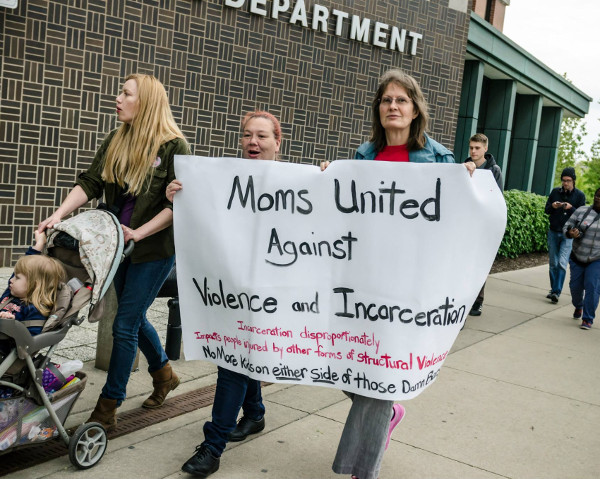
PHOTO/SARAH JANE RHEE
An 11-year-old girl murdered by a stray bullet while at a sleep over, a 12-year old-boy killed in a drive by while at the store shopping for candy and a 16-year-old boy killed by police who said he had a gun while eye witnesses said he didn’t. These are a few examples of the loss of children that have hit Chicago communities the hardest.
Chicago has become the latest poster child for the increasingly deadly violence that has been sweeping the U.S. Over the recent 4th of July weekend more than 80 people were shot, 16 fatally. The violence continued unabated throughout the rest of the month with scores of more victims ranging from toddlers to the elderly. The city has gained the nickname of ‘Chiraq’ because killings here have at times rivaled war-torn Iraq. People are shocked, bewildered and demanding answers from government.
“Look at the murder rate in this city. He’s murdering schools. He’s murdering jobs. He’s murdering housing. I don’t know what else to call him. He’s the murder mayor.” Chicago Teacher’s Union President Karen Lewis made this comment in March of last year after statistics showed that Chicago led the nation in 2012 with 512 murders. Mayor Emanuel in his grand scheme to transform Chicago into a global city has put more effort into gentrifying the poor out of their communities and transferring city assets to the corporations than in public safety. This earned him the additional title of Mayor 1%. He and others like him are the personification of corporate will at City Hall.
Once upon a time, large industrial factories needed large numbers of workers living in fairly stable communities. This required public schools, housing, health care, parks and libraries, funded by government. When electronics was introduced as labor-saving technology it evolved into labor-replacing technology. Slowly, it spread throughout production, distribution and communication. Today the factories are all but gone, replaced by robotic, computerized production. Good paying jobs are replaced by minimum wage jobs. Full-time employment is replaced by part-time, or none at all, especially for the youth. The polarization of society into two camps of the mega-rich and the desperately impoverished is accelerating.
Automated electronic production in private corporate hands is the deadly combination that killed jobs and led to the privatization of all things public, not just here but everywhere. It has brought death and destruction to Latin America and forced its children to flee for their lives. It has disassembled democracy in Michigan with Emergency Managers replacing elected officials and given us the humanitarian crisis of mass water shutoffs of the poor in Detroit and other cities. The dying system places no value on human life.
The call for more police on the street, more arrests, (which result in more brutalization and killings,) and tougher laws is not a solution. Such measures only attack the effect and leave the cause untouched. We are in a fight for our lives. What’s at stake is the future of human society. We must convince our people, and most importantly our young people, that they do have a bright and peaceful future. That future lies in the transfer of the electronic productive means of life from the hands of the corporate class into the hands of we, the people.


I’m really glad to see you covering the violence in Detriot and it’s impact on youth. I also want to say it’s great you mention both 2 year olds and the elderly, as this is promoting intergenrational equity. I’d love to see quotes from youth themselves in future articles, eppscially on violence against them, as this effects them directly, but so few of us are willing to listen to their voices.